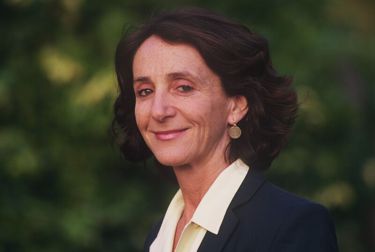SAGE Works to Revitalize Sustainable Agriculture in Areas Around Cities
SAGE Works to Revitalize Sustainable Agriculture in Areas Around Cities
In most places, food is so accessible that it is easy to forget that it does not just appear magically in grocery stores. On a broader level, it can be difficult to recognize that the seemingly empty parts of the landscapes surrounding us frequently serve an important role in a region's health and well-being, thanks to their use in agriculture. SAGE - Sustainable Agriculture Education - is working to change that understanding.
"Broadly speaking, SAGE's mission is to revitalize agricultural places at the edge of the cities where farming and food culture can thrive and be celebrated," says Sibella Kraus, the organization's founder and president.
SAGE, founded in 2001, works primarily through two programs: Urban-Edge Agricultural Revitalization and Urban-Rural Connections.
"At sort of a high level, it involves framing and analysis of agriculture and food systems as they relate to the health and resilience of an area or region," Kraus says. "For example, we currently are in the process of exploring the need for a Bay Area-wide agriculture and food systems program that is either integrated into regional planning or advisory to regional planning."
That process involves bringing together both individuals and groups with both diverse interests and spheres of influence to begin to define the issues at hand and to create strategies that will address those issues.
"Part of what we do is try to unpack, working with many collaborators, a number of questions: What does the food system and agriculture system look like in an area? What are challenges and what are opportunities and how can those all be addressed in a kind of a broader collaborative way?" says Kraus.
To that end, SAGE is working with other groups including SPUR and the Association of Bay Area Governments (ABAG) planning department to convene meetings with stakeholders from agriculture, urban food systems, and government representatives who are particularly interested in these issues.
In addition to their work as a collaborative think tank, SAGE also works as advisors in project development. "We recently took a look at the Springtown Golf Course in north Livermore, which has been closed, and we were brought in by the City of Livermore because they are trying to figure out what a repurposed use for that might be, to start the discussion of could it, should it be agriculture and what would that take?"
Working in partnership with the San Francisco Public Utilities Commission, in 2006 SAGE created the Sunol Water Temple AgPark, a collaborative farm that promotes sustainable agricultural practices, supports beginning and diverse farmers, fosters public education, and protects natural resources in the Alameda Creek watershed. The 20-acre AgPark, Kraus says, "is like a business park but instead of having businesses you have individual farms." SAGE created a management structure for the property and added infrastructure in the form of fences and irrigation, and subleases space to tenant farmers.
"The great thing about farming in Sunol (is that) you're 15 minutes from San Jose and Fremont and Pleasanton and so on and so forth," says Kraus, "so people can have farming businesses and still have an urban life. The other thing we like to say about Sunol is farming at the edges of cities is a great place to farm in terms of access to markets, getting food fresh to markets, and having your customers come and visit you. The idea of securing land at the edge of the cities, where you can help incubate some of these farming enterprises, I think is very popular."
The Sunol AgPark has also proven to be a popular destination for volunteer employee work days for a number of corporations as well as a good source of locally grown food for company food service operations.
SAGE is also interested in adding to its roster of like-minded donors. "We're thinking a little bit beyond the curve ourselves so we also always appreciate corporations, especially all of those known for their own innovative thinking, to invest in nonprofits like SAGE that are really at the cutting edge of thinking holistically about food and agriculture in the context of regional resilience," Kraus says.
For additional information on SAGE, access the group's web site at www.sagecenter.org, call (510) 526-1793, or e-mail info@sagecenter.org.
Photo: Sibella Kraus, Founder and President
Also in this issue...
- Sensiba San Filippo Bringing Headquarters to Hacienda
- Sedgwick Claims Management Services Helps Major Companies' Insurance Programs
- Business Bits
- Dave Camarillo Brings a Lifetime in Marital Arts To Guerrilla Jiu-Jitsu
- With Beer Trail, Other Initiatives, Visit Tri-Valley Works to Increase Tourism in the Region
- Monterey Private Wealth Provides Expert Financial Management for Families, Businesses
- Hacienda's Hotels Offer a Full Spectrum of Accommodations, Facilities
- Tax-Exempt Bond Program Provides Small, Medium Businesses With Low Interest Capital
- Purple Pipes Bringing Recycled Water to Pleasanton, Hacienda Landscapes
- SAGE Works to Revitalize Sustainable Agriculture in Areas Around Cities
- Hacienda June Index
- Calendar





